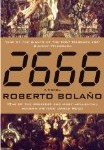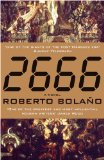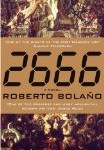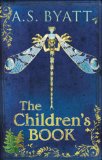Steph and Claire are hosting a read-along for the highly acclaimed book, 2666, by Chilean author Roberto Bolaño. The novel is 900 pages long, and divided into 5 parts. We are reading one part a month.
Here are my thoughts on Part 5: The Part About Archimboldi
After nearly 6 months I have finally finished 2666! It took me a long time to decide if it was worth the effort – this book has confused me, bored me, and amazed me in equal measure.
I have learnt that Bolaño cannot be predicted and so I had no idea what to expect in this final section. What I found was an enjoyable novel, similar to part 3, in that it could be enjoyed independently. It was easy to read and beautifully written, but as an ending to this colossal book I was a bit disappointed. The explanations for some of the initial mysteries were very mundane and the majority of questions were left unanswered. I don’t mind ambiguity at the end of a book, but I had expected a few revelations and some clever twists. I was left feeling very deflated and a feeling of “is that it?” Hopefully Part 6 will be released soon and will have a much more satisfactory climax.
As a standalone novel, Part 5 was very good. I loved learning about Archimboldi and reading the rich descriptions of his family. I was hooked from the first sentence:
His mother was blind in one eye. She had blond hair and was blind in one eye. Her good eye was sky blue and placid, which made her seem slow but sweet natured, truly good. His father was lame. He had lost his leg in the war and spent a month in a military hospital near Düren, thinking he was done for and watching as the patients who could move (he couldn’t!) stole cigarettes from others.
As with the rest of the book there were also a lot of deeper, more philosophical quotes:
That night, as he was working the door at the bar, he amused himself by thinking about a time with two speeds, one very slow, in which the movement of people and objects was almost imperceptible, and the other fast, in which everything, even inert objects, glittered with speed. The first was called Paradise, the second Hell, and Archimboldi’s only wish was never to inhabit either.
I am very intrigued about why Heaven is slow. I always thought Heaven was perfect and can’t understand why he would say this. Can anyone enlighten me?
There is so much to discuss in this book that I am sure you could study it for years and still have more to uncover. The big question is whether I recommend that you read it and that is a very difficult question to answer. A quick glance as my ratings for each section would probably put you off this 900 page chunkster.
Part 1: The Part About the Critics ![]()
Part 2: The Part About Amalfitano ![]()
Part 4: The Part About the Crimes ![]()
Part 5: The Part About Archimboldi ![]()
I think this book should be approached with caution. I don’t think I would have made it to the end without the support of the other readalong participants:
Richard, Emily, Frances, Gavin, Isabella, Lu, E.L. Fay, and the wonderful hosts Steph and Claire.
It is a confusing, and at times overwhelming book, but I think it is also the sort of book which grows on you. I think that this book will remain with me, with my appreciation for it growing all the time. There are so many layers and little details which bubble to the surface weeks/months after reading it. I don’t think I will ever discover the point of this book, but I don’t think it matters. This book is a masterpiece, which will become a classic. For that reason I have to award it:
![]()
I have no idea how that happened when I struggled with so much of it, but I can’t deny the power this book has had on me over the last six months. I highly recommend this book to anyone that loves literary fiction. I promise that is is worth it in the end.
Do you think this book will still be read 100 years from now?
Do you recommend it to others?
If you haven’t read it, do you think you will attempt it?








